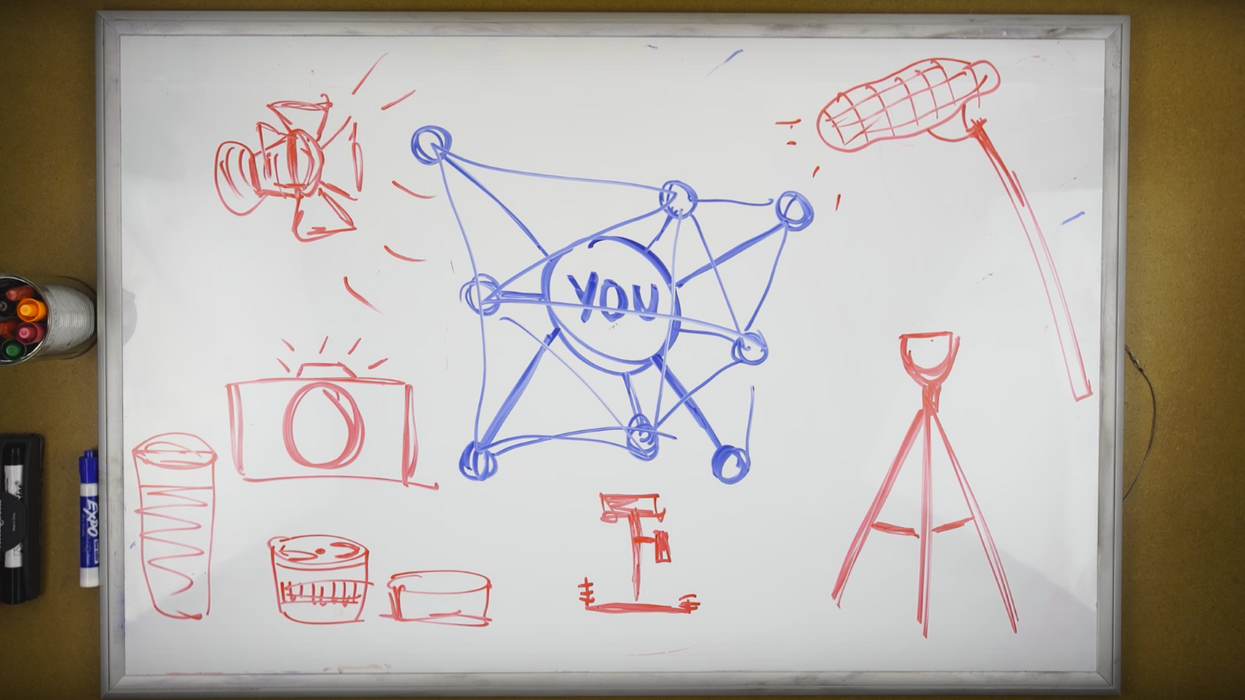Film School vs. The Internet: What Kind of Education Do Each of Them Offer?
Is it really worth it to go to film school or should you just stick to online tutorials?

Unlike doctors or lawyers, getting a college degree isn't required for us filmmakers to practice our craft, but thousands of students still enroll in film school every year. Why? Well, the answer really depends on who you ask. The Film Look's Richard William Scott & Robert Carr, both of who went to film school, offer their perspective on what a student can expect to gain both from getting a traditional film education and from getting on through free online resources.
Whether you're a staunch proponent or opponent of film school, you can't deny that 1.) it does have something unique to offer students, and 2.) it doesn't have everything a student needs to prepare them for a career in film. As a film school grad, I can say from personal experience that the experience you receive in and out of a college setting is very, very different with a lot of pros and cons for both, but they all have something to do with education, resources, networking, opportunities, and support, among other things.
Now, I've said it before and I'll say it again—I've learned more about the history and practice of filmmaking from writing for No Film School than I ever did studying at a university. I do not think anyone needs to go to film school in order to be a filmmaker. However, there are some things about going to college to study film that I think really help young filmmakers on their journey.
The way you receive information, a well as the information itself, is a little different in film school. The set curriculum that you must master in order to graduate can feel both constricting and freeing, because while you're learning about basic story structure, aesthetics, film history, and famous directors, you might find that certain courses introduce you to new concepts, techniques, and filmmakers that you might have never thought to study on your own on the internet.
For example, I focused primarily on cinematic history in college and though I studied a bit about early directors like D.W. Griffith and Orson Welles before I ever enrolled, I would've never thought to seek information about the film cultures of Scandinavian, European, and South American countries, as well as the film movements that occurred around the world at different times in history. College is where I fell in love with the French New Wave, German Expressionism, and Italian Neorealism.
But while film school can introduce you to a lot of information, that information is extremely limited when you compare it to the vast offerings of the virtually limitless internet. Nowadays, YouTube videos and tutorials you can teach you just about anything about filmmaking, from special effects makeup, editing, cinematography, screenwriting—I mean, video essays have really taken off in the last year and are almost single-handedly helping to teach the next generation of filmmakers about cinematic concepts that you'd really only learn in film school.
Aside from the actual information you receive, film school offers structure, access to equipment, and networking opportunities. Some of you might need that face-to-face guidance that a professor provides (I certainly grew immensely from the advocacy and stewardship of my instructors), while some of you might do better by just grabbing a camera and shooting a bunch of short films. Some of you may not need to rely on the resources of a university now that quality camera equipment is so cheap, while some of you may benefit greatly from it. Some of you might appreciate how film school connects you to a lot of people who are passionate about film, while some of you already belong to a bunch of online film communities and groups (hopefully some real life ones, too).
In the end, no one can tell you whether or not film school is right for you; you have to figure that out for yourself. There are plenty of pros and cons to going and not going, so really it depends on how you want to receive your education.
Source: The Film Look











